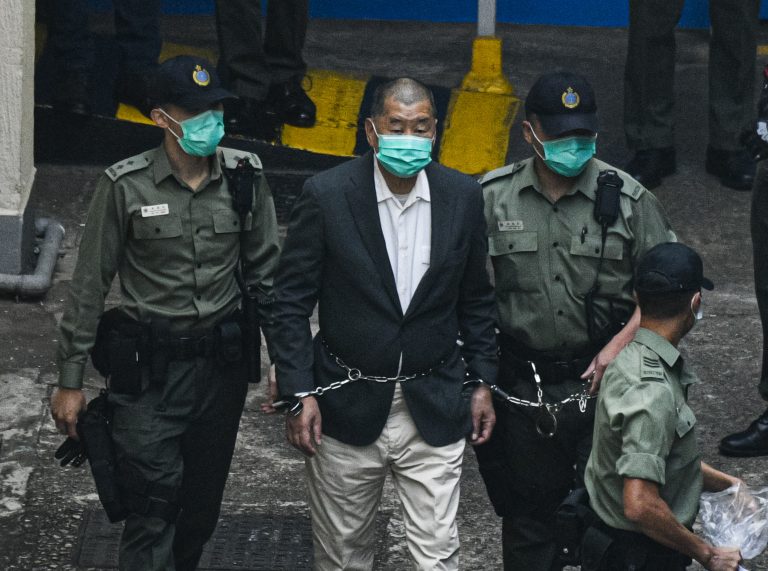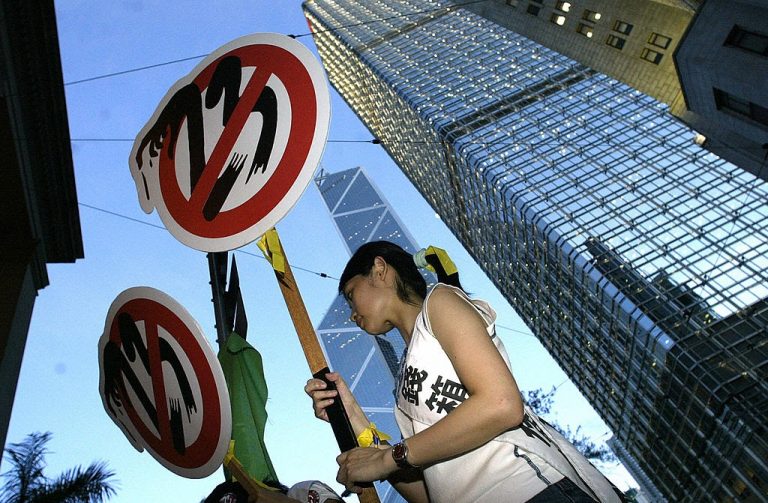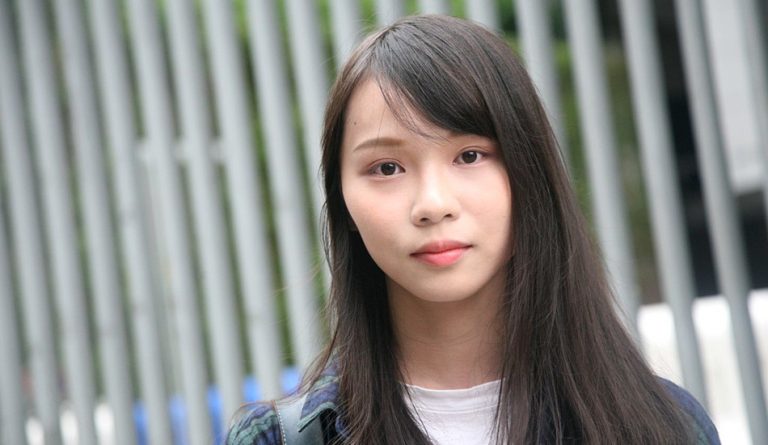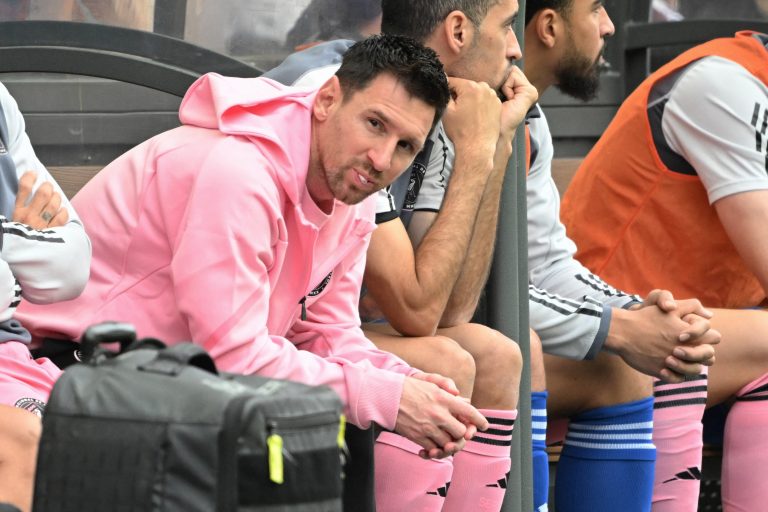The founder of Hong Kong’s now-disbanded media outlet Apple Daily, Jimmy Lai, will be standing trial without a jury after deciding to plead not guilty to national security charges.
On Aug. 22, prosecutors said during Lai’s case management hearing that the media mogul would challenge the charges of “colluding with foreign forces and anti-sedition laws,” and agreed to appear before a panel of three national security judges handpicked by Hong Kong’s government.
Six fellow executives, as well as the manager of Apple Daily, and its parent company, Next Digital, said they intended to plead guilty in hopes of receiving a more lenient sentence.
If found guilty of the charges, Lai, 74, faces up to life in prison. According to a copy of the judge-only trial order, the court cited “involvement of foreign elements,” “personal safety of jurors and their family members” and the “risk of perverting the course of justice if the trial is conducted with a jury,” as reasons for Lai’s unique trial proceedings.
MORE ON HONG KONG UNDER THE NATIONAL SECURITY LAW:
- Xi Visits Hong Kong as Propaganda Touts Chinese Regime’s ‘Strong Leadership’ in Handling the City
- Hong Kong, Once a Bastion for Free Press, Now Ranks Dismally in Annual Press Freedoms Report
- Apple Daily Raided by Hong Kong Police; Several Arrested Under ‘National Security Law’
- Chinese State-linked Newspaper Brands Hong Kong Journalist Association as ‘Anti-China,’ Calls for Its Disbandment
The National Security Law (NSL) went into effect in Hong Kong on June 30, 2020, at the behest of the mainland Chinese government. The NSL bans many forms of political dissent and expression deemed dangerous as threats to “national security,” and allows for a maximum sentence of life imprisonment.
Success
You are now signed up for our newsletter
Success
Check your email to complete sign up
Thousands of dissidents have been arrested or charged under the NSL.
The NSL, coupled with an increased censorship of Hong Kong’s media outlets have severely undermined the city’s civil freedoms after it was returned to the People’s Republic of China (PRC) in 1997. The actions have been seen as a violation of the 1984 Sino-British Joint Declaration — whereby the PRC government promised to guarantee Hong Kong’s civil liberties for at least 50 years under the “one country, two systems” framework.
In June 2021, Apple Daily, which was hailed as a pro-democracy outlet, reported that an estimated 400 police officers and special agents had raided their Hong Kong offices, blocking all entrances and exits, and arrested several executives including its editor-in-chief in what was described as a “blatant attack” against its editorial team.
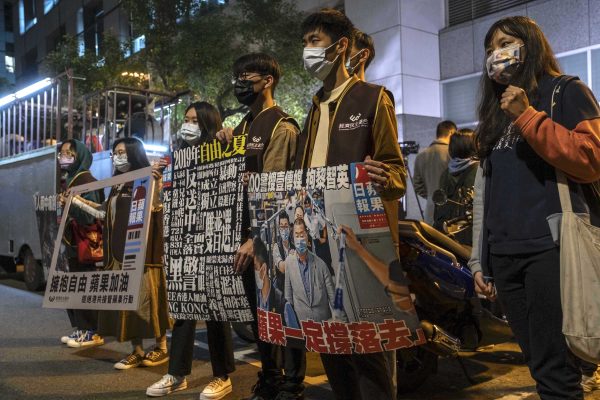
“CEO Cheung Kim-hung, COO Royston Chow, Chief Editor Ryan Law, Associate Publisher Chan Pui-man and Platform Director of Apple Daily Digital Cheung Chi-wai were taken by police officers early on Thursday morning, [June 17]” the outlet reported at the time, adding that “officers also went through the [executives’] residences.”
The five directors who were taken into custody were then accused of “collusion with a foreign country or with external elements to endanger national security.”
“All staff members were required to register with their identity cards, staff ID and personal information before they were allowed in,” the news outlet reported.
Clamping down on Hong Kong
Lai’s judge-only trial has highlighted concerns by international legal observers and activists regarding Hong Kong’s changing legal system, and the long-lasting effects these reforms would have on the civil rights of the more than 7 million Hong Kongers.
The trial also comes at a time where the city has tightened controls after new leader John Lee was appointed as the city’s new chief executive in May.
READ MORE:
- Xi Tightens Grip on China’s Police Force Ahead of 20th Party Congress
- Incoming Hong Kong Leader John Lee Strengthens Xi’s Authority Over City
- Hongkongers Fear Tightening Regime Control as Officials Promote Mainland-style ‘Health Codes’
- Joseph Zen, One of Asia’s Most Senior Catholics, Arrested in Hong Kong on National Security Charges
A career policeman and former chief secretary, Lee is known as a staunch Beijing supporter and was unanimously selected to replace outgoing chief Carrie Lam by a panel of 1,461 representatives who are vetted and handpicked by the Chinese Communist Party.
In 2020, Lee backed the passing of the NSL, and facilitated the arrests of more than 160 activists — including activists and journalists from various pro-democracy outlets.
Lam, who gained widespread infamy for her role in crushing the 2019-2020 democracy movement in Hong Kong, opted not to seek a second term, and chose to step down at the end of her first five-year term in April.



